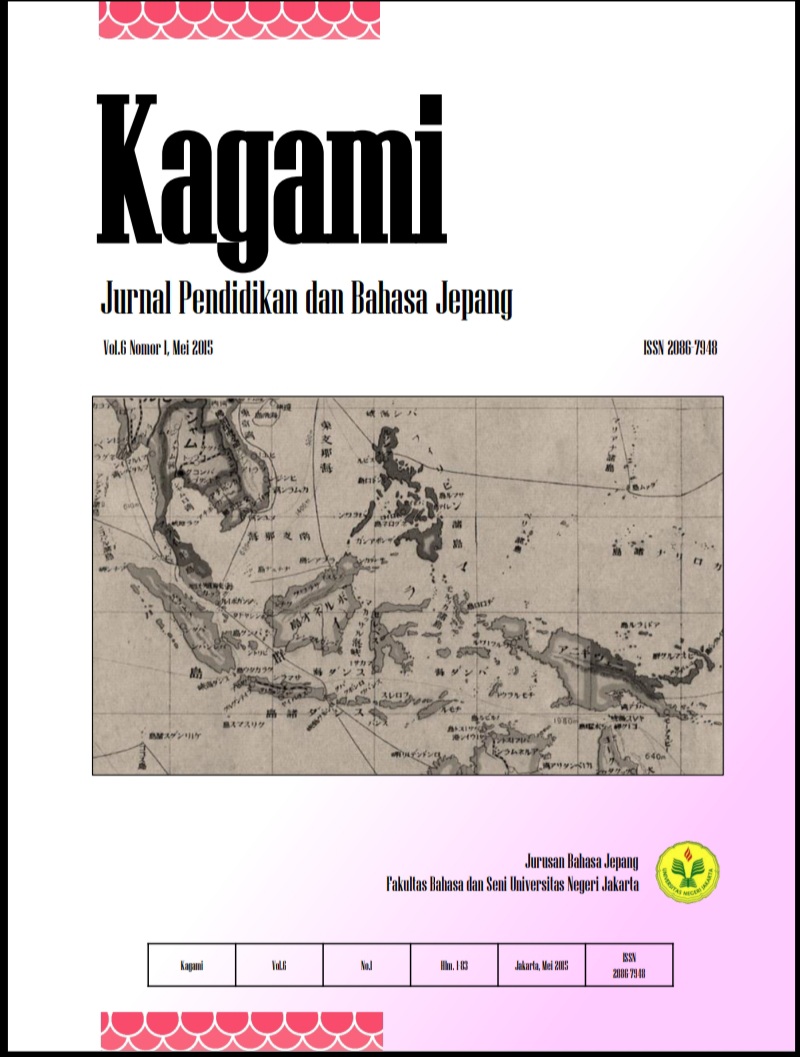KARAKTERISTIK PEMELAJAR PEMEROLEHAN BAHASA KEDUA
(Sebuah Studi Kasus terhadap Mahasiswa Jurusan Bahasa Jepang Universitas Negeri Jakarta)
Keywords:
second language acquisition, learning strategies, personality, motivationAbstract
The second language acquisition that we discuss in this article refers to what
Gleason and Ratner (1998 : 454) said that “we refer to second language
acquisition when describing cases in which a learner who already has some
degree of control over one language system is introduced to a second (or third or
fourth).” The objects of this study are two students of Japanese Language
Department at Jakarta State University who each of them has a very contrast
characteristic. The first one is the successful one, and the other is the failure one.
The purpose of this study is to see what makes them different from each other, and
what makes them success or failure in the process of this second language
acquisition, which is in this case is Japanese language. In this study we observed
the learning strategies, personality, and their motivation of learning. As the result
we found that the student with good learning strategies, which accomplished 4
main strategies in learning process, and stabil personality with high motivation
will much more success than the other one.
References
Terjemahan. Jakarta : Kedutaan Besar Amerika Serikat
Dörnyei, Zoltan. 2005. The Psychology of Language Learnes. New Jersey :
Lawrence Erlbaum Associates
Gay, L.R., Geoffrey E. Mills, Peter Airasian. 2009. Educational Research:
Competencies for analysis and applications. Edisi 9. USA: Pearson
Education.
O’Malley, J. Michael. 1995. Learning Strategies in Second Language Acquisition.
British : Cambridge University Press
Saklofske, Donald H. 1995. International Handbook of Personality and
Intelligence. New York : Plenum Press





